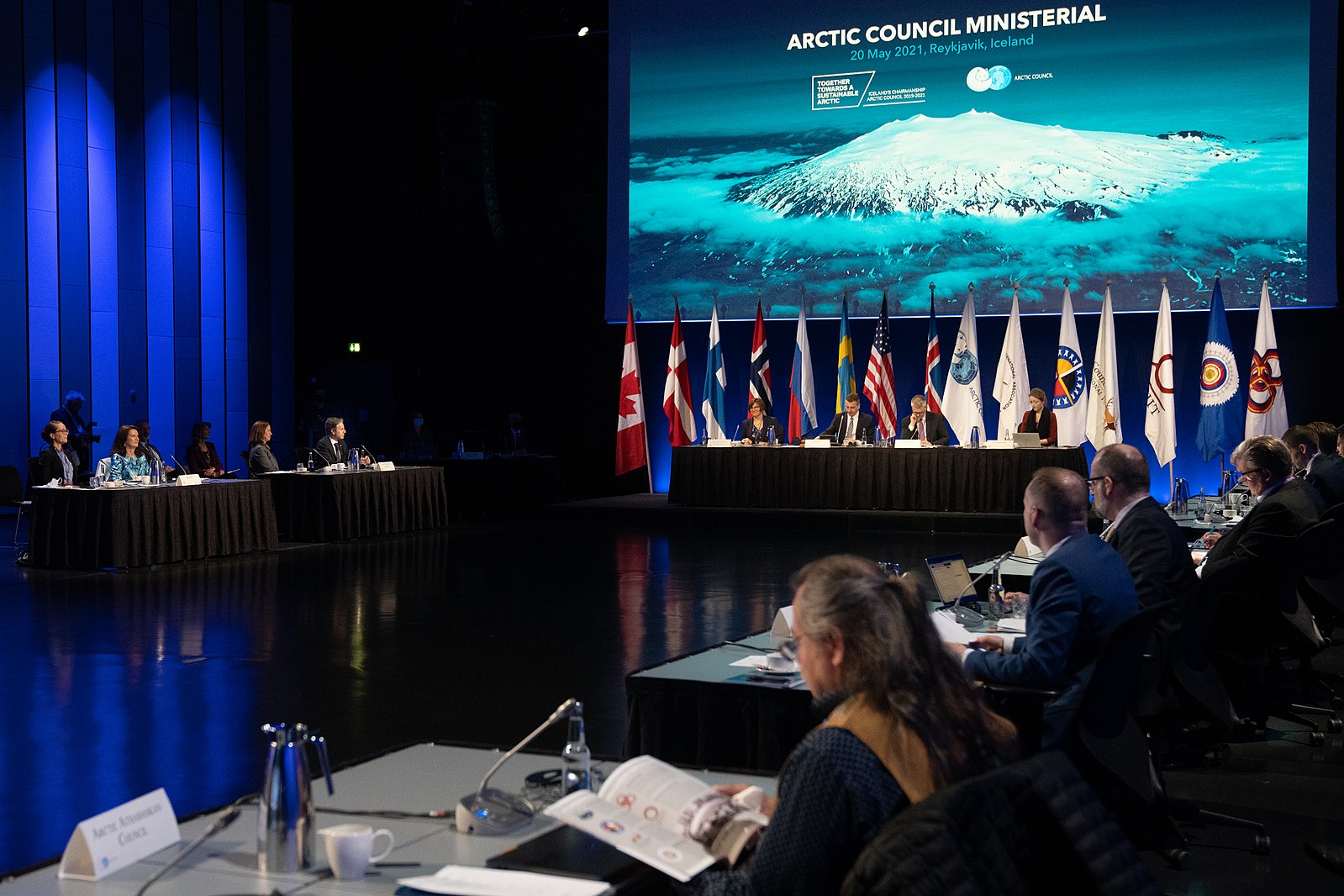 Image credit: U.S. Department of State
Image credit: U.S. Department of State
Navigating Diplomacy: Keeping the Arctic Council Afloat
As Denmark prepares to assume the chairmanship of the Arctic Council in the Spring of 2025, it faces a formidable challenge. The Arctic Council was founded to protect the Arctic environment, a mission increasingly under threat. The sea ice is shrinking at a size similar to the country of Austria annually, and temperatures are rising. Complicating matters further, Russia has been reported to withhold information necessary for mapping, resulting in a skewed image of the climate change rate, as half of the Arctic is left out. Moreover, the Kremlin declared that multilateral Arctic cooperation is out of the question, opting instead for bilateral communication. A potential avenue to overcome this impasse and keep the council afloat could lie in the collaboration with the indigenous groups of the Arctic Council.
The Arctic Council consists of the eight Arctic states and six permanent participants (indigenous peoples’ organizations) with a biannual rotating chairmanship between the states. The Senior Official Chair(SOC) is each country’s government representative tasked with carrying out their instructions. The country holding the chairmanship publishes an official program outlining its agenda and is responsible for hosting the meetings. Following Russia’s invasion of Ukraine, however, the cooperation in the Arctic froze as all of the Arctic Council members boycotted Russian participation.
In addition to the pressing nature of climate change in the region, increased military competition challenges the council’s mandate. Although it affirmed in the Ottawa Declaration that it “should not deal with matters related to military security,” this is getting increasingly difficult. Military investments and exercises have escalated across all sides. After Finland and Sweden’s entrée to NATO, Russia was the only remaining Arctic country to be left outside; and reports suggest that it has been quietly investing in Arctic military and industrial infrastructure for the last decade. This all adds up to the deterioration of a council based on diplomatic consensus and dialogue.
To thaw the stagnation and pick up the dialogue, as the new chair of the council, Denmark should lean on the voices of the indigenous peoples to reinforce a focus on societal security. This can be a point of convergence in the political sphere and could aid in de-escalating tensions, as it draws the focus away from state-centered issues, and onto the issues of Arctic natives. Strengthening the ties among Indigenous people was at the top of the Russian chairmanship priority during its tenure in 2021-2023, therefore it should align with a shared interest in building resilience and collaboration regionally. After Russia invaded Ukraine, Sámi representatives from Russia urged for continued dialogue: “Now, more than ever, the Sami people in Russia need international support to continue cooperation between the Sami of the four countries.”Programs like the 2023 Wildland Fires collaboration illustrate the necessity and success of cross-border teamwork, by providing critical information on wildfires—a shared threat for all Arctic nations, including Russia, which faces severe wildfire challenges each year. By urging Russia to uphold its commitments to indigenous populations, through these types of initiatives, the other Arctic states can highlight Russia’s accountability. In turn, If Russia does not cooperate, it reveals that it had no intent of respecting the principles it originally claimed to hold.
Greenland’s geographical proximity to the Arctic and its large indigenous population lend Denmark greater credibility in its diplomatic efforts within the region. There have been large discussions in the Kingdom of Denmark, comprised of the Faroe Islands and Greenland, about whether or not the new SOC will be from mainland Denmark or the two other territories, resulting in the recent decision to select a Greenlandic representative. This strengthens the European narrative of respect and support of human rights, the rule of law, and anti-imperialistic sentiments. Moreover, improved relations between the Inuit populations of Greenland and Canada’s Nunavut point to a budding diplomatic relationship that could inspire further indigenous cooperation across Arctic borders. A strong indigenous alliance, and prosperous connections with the remaining Arctic states, could be a resource should tensions rise further.
The importance of strengthening intergovernmental institutions will be paramount in the coming years. It is therefore important to prioritize constructive conversation in the Arctic Council during the Scandinavian rotation of Norway, Denmark, and Sweden until 2029. Should the Arctic countries fall short of dialogue, the world will be less prepared to deal with the detrimental consequences of climate change including an acceleration of natural greenhouse gas emissions, increased extreme weather, and an overall rise in sea levels. Consequently, this is not merely crucial for the political environment but eventually our natural environment, wherein each year of inaction makes recovery difficult.





